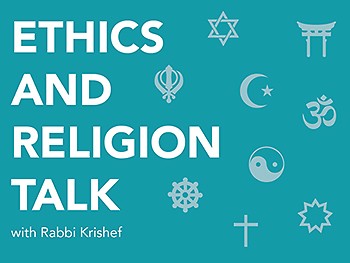A question submitted to an interfaith panel on approaches to hospice care: How do your faiths view communications with deceased loved ones? Is this not encouraged or not even possible?
The Reverend Colleen Squires, minister at All Souls Community Church of West Michigan, a Unitarian Universalist Congregation, responds:
If a grieving person finds comfort in talking to someone who has passed away then I would highly encourage those conversations to continue. Losing someone has caused enough pain and suffering why would a faith want to add to that suffering. I remember when I first felt my call to ministry I had a lengthy conversation with my Aunt Ruth (who was deceased). I was overwhelmed and afraid about all the changes entering seminary would bring to my happy little life. I spoke my fears aloud and directed them specifically to her. When I was done talking I felt a sense of clarity and fully committed to my calling. I felt better and I felt loved and supported even though she was not physically there, I sensed perhaps by my memory of Ruth her presence. My logical mind knows she was not there but my heart tells me she is still very much present in my life.
Fred Stella, the Pracharak (Outreach Minister) for the West Michigan Hindu Temple, responds:
Scriptures say that after death the soul resides in a subtle realm, often referred to as ‘the astral,’ for a time. How long the soul is there before reincarnating (assuming it will need to do so) varies. Many Hindus do believe that the departed can be contacted by sensitive individuals. Sometimes we dream of lost family and friends. While often we can chalk this up to mere wish fulfillment it might be possible that this somnambulant connection is a communiqué of some sort not to be dismissed out of hand.
But many of the great teachers in our tradition caution against paying too much attention to this at the expense of cultivating our spiritual growth. Part of that development is concerned with emotionally detaching from losses. To be clear, this does not mean that grieving the loss of loved ones is to be ignored. But sometime we must surrender to this human condition.
A couple years ago I found myself in the company of someone whom others had claimed was a very good medium. It was not something I’d normally go out of my way to seek, but since we were in the same place I thought, what the heck? So I asked him if he sensed my departed brother. For the next 20 minutes we sat as he relayed ‘answers’ from my brother to me. I could not find one single thing this guy said to resemble my brother in any way. It sounded like he was recited a prepared script that he’d use for every encounter.
Father Kevin Niehoff, O.P., a Dominican priest who serves as Adjutant Judicial Vicar, Diocese of Grand Rapids, responds:
Roman Catholics profess the Nicaean Creed each Sunday reciting the words “…I believe in the communion of saints…” This refers to all the souls who have gone before us marked with the sign of faith, including deceased loved ones. Communication with deceased loved ones is not only encouraged but also regularly practiced when we recite what we believe.
Prayer is a powerful tool and is used in communication with deceased loved ones. My father died in 2003 and my mother died in 2011. I have never felt closer to them. I truly believe what the Church teaches regarding the communion of saints and specifically regular communication with deceased loved ones.
Rev. Ray Lanning, a retired minister of the Reformed Presbyterian Church of North America, responds:
The account of King Saul’s great sin in consulting the Witch of Endor (I Samuel 28:6-20) suggests that communication with the dead is possible; although the woman seems to have been surprised, even terrified, by her success in ‘bringing up’ the prophet Samuel from the dead. God’s law forbids all attempts to communicate with the dead, and banishes all who practice the ‘dark arts’ from the fellowship of His church (Deuteronomy 18:9-14).
Though we may long for it, Christians have no need of communication with the dead. God's Word provides abundant comfort for all who are bereaved, and direction for all who want to know His will. ‘Thy word, O LORD, is a lamp unto my feet, and a light unto my path’ (Psalm 119:105).
My response:
The Biblical story of Saul raising the ghost of Samuel is an illustration of the prohibition against consulting mediums. It does not preclude speaking to those who predecease us. In fact, there is a Jewish tradition for a person who have done wrong to another who dies before they have a chance to apologize, should go to the cemetery and speak words of repentance over their grave.
This column answers questions of Ethics and Religion by submitting them to a multi-faith panel of spiritual leaders in the Grand Rapids area. We’d love to hear about the ordinary ethical questions that come up on the course of your day as well as any questions of religion that you’ve wondered about. Tell us how you resolved an ethical dilemma and see how members of the Ethics and Religion Talk panel would have handled the same situation. Please send your questions to [email protected].
The Rapidian, a program of the 501(c)3 nonprofit Community Media Center, relies on the community’s support to help cover the cost of training reporters and publishing content.
We need your help.
If each of our readers and content creators who values this community platform help support its creation and maintenance, The Rapidian can continue to educate and facilitate a conversation around issues for years to come.
Please support The Rapidian and make a contribution today.
